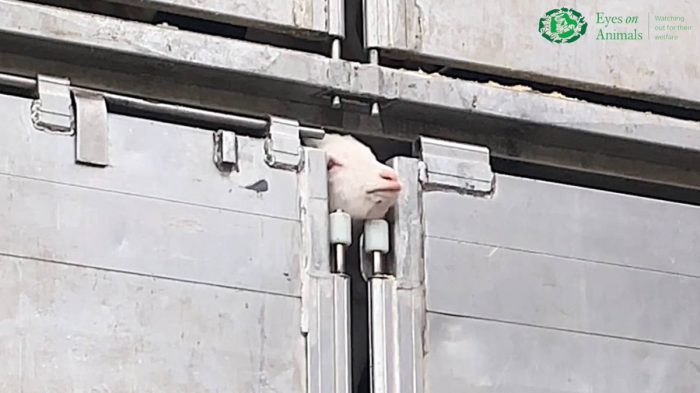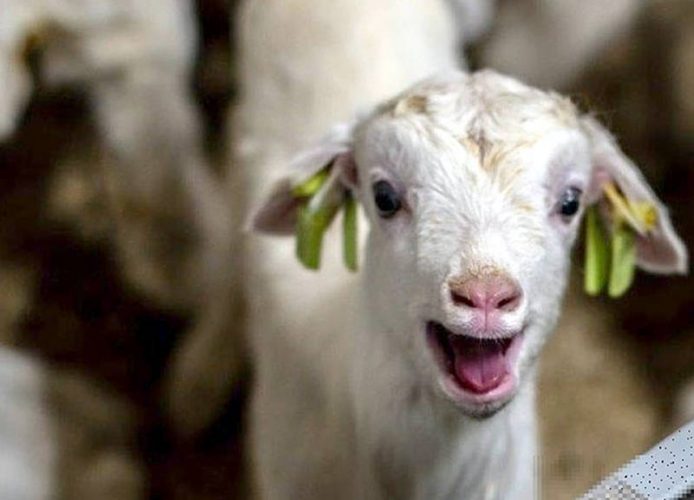Ever since we uncovered many dead goat kids on a goat fattening farm in the Netherlands three years ago, we have been working on a long-term investigation into the welfare of goat kids.
We have been holding talks with Dutch officials about the need for stricter regulations and talking with goat farmers. We have been trailing trucks transporting the unwanted male kids and visiting the slaughterhouses that slaughter them. Soon we will publish our findings.
However, already tonight (May 22nd, 18:15 CEST, Channel NPO1) the Dutch TV show EenVandaag is dedicating some time to the fate of these goats and is interviewing Eyes on Animals about our investigations. If you speak Dutch, make sure you don’t miss the show and please do pass this on!
Watch tonight LIVE via this link >
Watch AFTER tonight via this link >
Our concerns about the welfare of goat kids
Male goat kids face an even more uncertain faith than the low-value male calves from the cattle dairy industry, mainly because the market for goat meat is very small. Unable to produce milk, and meat that is not valued, means that the male goat kids have close to no economic value when they are born.
As a result, they often receive insufficient colostrum (this crucial first milk from the mother is full of antibodies to help the new-born build a strong immune system) because it is often saved and given just to the female new-borns. The males, seen as by-products, are often neglected and quickly become sick.
In The Netherlands, over 30% of male kids die on fattening farms before ever making it to the slaughterhouse. How many male kids die on the goat dairy farms is not even known, as the kids kept on the dairy farm are not registered until 6 months of age and thus mortality rates are not tracked.
Fortunately, there are a few goat dairy farmers that stand out from the rest and want to do things better. Some keep the kids, including the males, even with the mother and take care of them as much as possible, even if this costs them more time and money. Others offer pastures outdoors to their goats, animals that are usually still raised always indoors. These farmers however are a small minority.
Eyes on Animals is striving to clean up the goat dairy industry by exposing its inherent problems and pushing for change. Consumers and government will have to make the final decision if this type of production, dependent on the production of unwanted life, should be allowed to continue or not, and how.
One thing is clear: animals should never be seen as a mere unwanted by-product.



